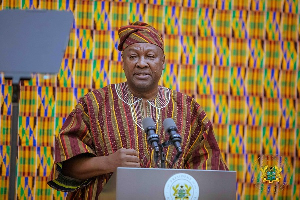Chairman of the Coalition on the Right to Information (RTI), Seth Abloso, has called for an independent parliament which will take up the duty of appointing ministers instead of the president nominating parliamentarians as ministers.
Describing the recent Parliament of Ghana as incapacitated, he noted that it is important for parliament to stand alone, thereby making it not obligatory for the president in his appointment of ministers for his government.
“I think we need an independent parliament, so far our parliament is incapacitated. Incapacitated by the provision which makes it obligatory for a president to appoint a majority of his ministers from parliament. It doesn’t make parliament stand on its own. So moving forward, that is something to look at.”
Speaking at the launch of “Report and Documentary on the RTI journey in Ghana to mark IDUAI 2019,’ Monday, September 30, Mr Seth Abloso noted that the fight for Right to Information Bill has just begun.
“Our task is not ended with the passage of Right to Information Bill. In fact, our responsibility towards this country becomes intense at this point.”
He, however, laments over government’s ability to restrict the use of free air information, calling it worrisome.
With the aim of achieving a successful passage to Right to Information Bill, he has urged Ghanaians to join in the campaign in other to reverse the stumbling block.
“In consolidating our democracy, it’s important for us to have, free access to information and therefore it’s worrying that government ministry has initiated steps that will block free to air access to information. Which will require that all of us require decoders, which means if you don’t have decoders you can’t have access to information. It’s a campaign that needs to be supported for this situation to be reversed,” he said.
Background
After about two decades of waiting, President Nana Addo Dankwa Akufo–Addo on a Tuesday gave assent to the Right to Information (RTI) Act that was passed by Parliament in March, 2019.
The RTI Law seeks to give effect, to Article 21 (1) (f) of the 1992 constitution of the Republic of Ghana which states that “All persons shall have the right to information subject to such qualifications and laws as are necessary for a democratic society.”
It, also, seeks to operationalise the constitutional right to information by the public, and some private institutions, subject to exemptions that are necessary and consistent to safeguarding the public interest in a democratic state.
The Presidential assent makes the RTI law a statute under the constitution, which provisions would empower people, contain corruption, and bringing transparency and accountability in the working of the government.
The Minister of Information, Mr Kojo Oppong Nkrumah, moved the motion for third reading and seconded by the National Democratic Congress (NDC) Member of Parliament (MP) for Tamale Central and Ranking Member on the Constitutional, Legal and Parliamentary Affairs Committee of Parliament, Alhaji Inusah Fuseini.
The RTI Bill was first drafted in 1999, reviewed in 2003, 2005 and 2007 but was only presented to Parliament in 2010.
General News of Tuesday, 1 October 2019
Source: www.ghanaweb.com













